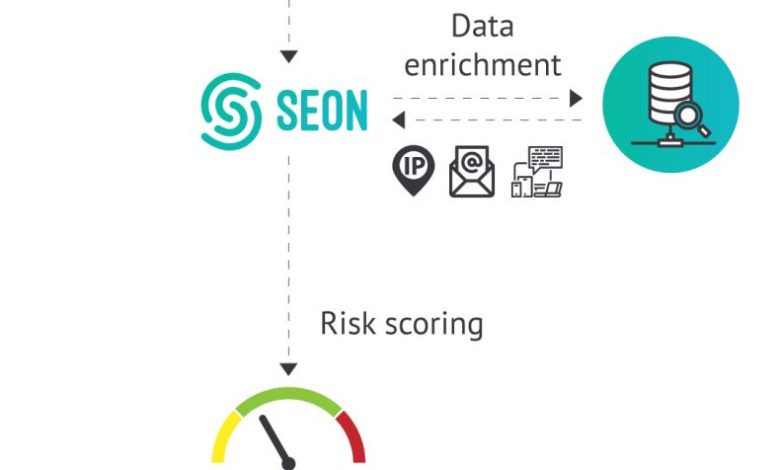Cryptocurrency Regulation: How Laws Help Fight Scams

- Understanding the importance of cryptocurrency regulation
- The role of laws in protecting investors from scams
- How regulations can promote trust in the cryptocurrency market
- Challenges in enforcing cryptocurrency regulations
- Examples of successful regulatory measures against scams
- The future of cryptocurrency regulation: trends and developments
Understanding the importance of cryptocurrency regulation
Cryptocurrency regulation plays a crucial role in protecting investors and preventing fraudulent activities in the digital asset market. By establishing clear guidelines and rules for cryptocurrency exchanges and transactions, regulators can help ensure a level playing field for all participants.
Regulation also helps to promote transparency and accountability within the cryptocurrency industry. When exchanges and other market participants are required to comply with regulatory standards, it becomes easier to track and monitor their activities. This can help prevent scams and other illegal activities from taking place, ultimately safeguarding the interests of investors and the integrity of the market as a whole.
Moreover, cryptocurrency regulation can help to legitimize the industry in the eyes of the public and traditional financial institutions. By creating a regulatory framework that addresses concerns such as money laundering, fraud, and market manipulation, regulators can help to build trust and confidence in cryptocurrencies as a legitimate asset class.
Overall, understanding the importance of cryptocurrency regulation is essential for ensuring the long-term viability and sustainability of the digital asset market. By establishing clear rules and guidelines, regulators can help to protect investors, promote transparency, and legitimize the industry, ultimately fostering its growth and development in a responsible and sustainable manner.
The role of laws in protecting investors from scams
Investors in the cryptocurrency market are vulnerable to scams and fraudulent activities due to the decentralized and unregulated nature of the industry. Laws play a crucial role in protecting investors from falling victim to these scams.
One way laws help fight scams is by establishing regulatory frameworks that require cryptocurrency exchanges and other platforms to adhere to certain standards and practices. These regulations help ensure transparency, accountability, and security in the market, making it more difficult for scammers to operate unchecked.
Additionally, laws provide investors with legal recourse in case they become victims of scams. By having clear legal guidelines and protections in place, investors can seek justice and potentially recover their losses. This acts as a deterrent to scammers, knowing that they can be held accountable for their actions.
Furthermore, laws help educate investors about the risks associated with cryptocurrencies and how to identify potential scams. By promoting awareness and providing resources for investors to make informed decisions, laws empower individuals to protect themselves from falling prey to fraudulent schemes.
In conclusion, the role of laws in protecting investors from scams in the cryptocurrency market cannot be overstated. By establishing regulations, providing legal recourse, and promoting education, laws help create a safer and more secure environment for investors to participate in this rapidly evolving industry.
How regulations can promote trust in the cryptocurrency market
Regulations play a crucial role in promoting trust within the cryptocurrency market. By establishing clear guidelines and standards, regulations help to weed out fraudulent activities and scams that can erode trust among investors and users. When investors feel confident that there are rules in place to protect their interests, they are more likely to participate in the market, leading to increased liquidity and stability.
Moreover, regulations can also help to legitimize the cryptocurrency market in the eyes of the general public and traditional financial institutions. When governments and regulatory bodies endorse and oversee the market, it signals to the public that cryptocurrencies are a legitimate asset class worthy of consideration. This can attract more institutional investors and mainstream adoption, further solidifying the market’s credibility.
Additionally, regulations can provide a level playing field for all participants in the cryptocurrency market. By enforcing rules around transparency, disclosure, and investor protection, regulations ensure that all players, big or small, operate under the same set of rules. This helps to prevent market manipulation and unfair practices, fostering a more trustworthy and sustainable market environment for everyone involved.
In conclusion, regulations are essential for promoting trust in the cryptocurrency market. They provide a sense of security and stability for investors, help to legitimize the market in the eyes of the public, and create a level playing field for all participants. By establishing clear guidelines and standards, regulations can help to fight scams and fraudulent activities, ultimately leading to a more robust and trustworthy cryptocurrency market.
Challenges in enforcing cryptocurrency regulations
Enforcing regulations on cryptocurrency poses several challenges due to the decentralized and borderless nature of digital currencies. One of the main challenges is the difficulty in tracking transactions and identifying the parties involved. Cryptocurrencies operate on blockchain technology, which offers a high level of anonymity and privacy, making it challenging for regulators to trace illicit activities.
Another challenge is the lack of a centralized authority governing cryptocurrencies. Traditional financial systems have regulatory bodies that oversee transactions and enforce laws. However, with cryptocurrencies, there is no central authority, making it harder to implement and enforce regulations uniformly across different jurisdictions.
Moreover, the rapid pace of technological advancements in the cryptocurrency space makes it challenging for regulators to keep up with new developments. As scammers and fraudsters find innovative ways to exploit the system, regulators must constantly adapt their strategies to combat these threats effectively.
Additionally, the global nature of cryptocurrencies presents a challenge for regulators, as laws and regulations vary from country to country. This lack of uniformity makes it difficult to create cohesive regulatory frameworks that can effectively address the risks associated with cryptocurrencies.
In conclusion, while regulations are essential to combat scams and protect investors in the cryptocurrency market, enforcing these regulations poses significant challenges. Regulators must work together to develop innovative solutions that can effectively address the unique challenges posed by cryptocurrencies while ensuring a safe and secure environment for all participants.
Examples of successful regulatory measures against scams
There have been several successful regulatory measures implemented to combat scams in the cryptocurrency industry. These measures have been crucial in protecting investors and maintaining the integrity of the market. Some examples of effective regulatory actions include:
- Enforcement actions by regulatory bodies: Regulatory agencies such as the Securities and Exchange Commission (SEC) have taken enforcement actions against fraudulent cryptocurrency projects. These actions have resulted in the shutdown of scams and the prosecution of individuals involved in fraudulent activities.
- Regulatory guidelines and frameworks: Governments and regulatory bodies have introduced guidelines and frameworks to regulate the cryptocurrency market. These regulations help to establish standards for cryptocurrency projects and ensure transparency and accountability in the industry.
- Education and awareness campaigns: Regulatory bodies have launched education and awareness campaigns to inform investors about the risks associated with cryptocurrency investments. These campaigns help to empower investors to make informed decisions and avoid falling victim to scams.
- Collaboration between regulators and industry stakeholders: Regulators have collaborated with industry stakeholders such as exchanges and wallet providers to share information and best practices for combating scams. This collaboration has been instrumental in identifying and shutting down fraudulent activities in the cryptocurrency market.
The future of cryptocurrency regulation: trends and developments
The future of cryptocurrency regulation is a topic of great interest and debate in the financial world. As the popularity of cryptocurrencies continues to grow, governments around the world are grappling with how best to regulate this new form of digital currency.
One trend that has emerged in recent years is the move towards more stringent regulation of cryptocurrencies. This is in response to the increasing number of scams and fraudulent activities that have plagued the industry. Regulators are now taking a more proactive approach to combating these scams, with many countries introducing new laws and regulations to protect investors and consumers.
Another development in cryptocurrency regulation is the growing recognition of the need for international cooperation. Cryptocurrencies are by nature borderless, making it difficult for any one country to regulate them effectively. As a result, there is a growing push for greater collaboration between countries to develop common standards and regulations for the industry.
Overall, the future of cryptocurrency regulation is likely to be characterized by increased oversight and cooperation between countries. While this may lead to some challenges for the industry, it is ultimately seen as a positive development that will help to protect investors and consumers from scams and fraud.



